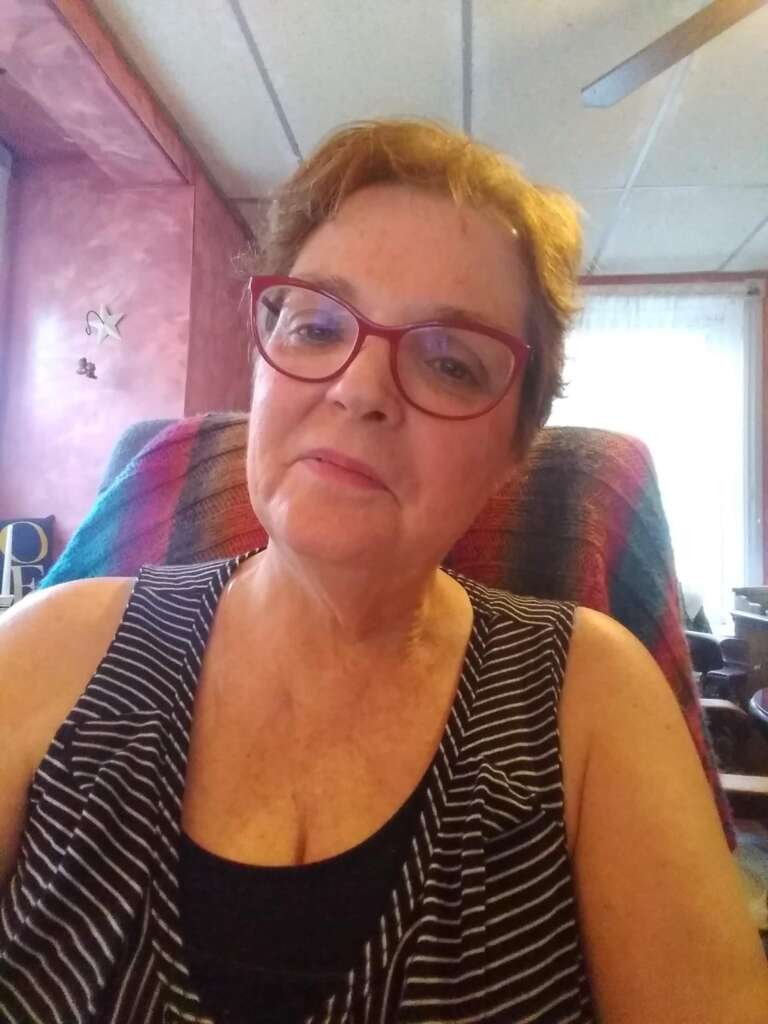Leah’s eyes were tender, but Rachel was shapely and beautiful.
Genesis 29:17
“You have beautiful eyes,” he said, and here Dr. Scheie paused dramatically–or at least he should have paused dramatically, because what he was about to say would have a major impact on my life–“but you have a rare and serious disease. It’s called keratoconus and it deforms and destroys the corneas. I’m afraid that you have it in both eyes and while we can deter the progress, we can’t cure it.”
It is hard to believe that it has been more than forty years since I heard those words, forty years since my mother and I drove up to Penn on a wintry January day. I was nineteen at the time, a freshman at Millersville State College headed towards a teaching degree in elementary education. But headaches and blurred vision, episodes of dizziness, and walking into walls had convinced my parents that something more than just a change of glasses was needed. No one expected that the appointment would reveal a disease that would ultimately become a major player in the story of my life. But our lives often have unexpected plot twists. Take, for example, Leah, in love with Jacob, who was in love with the younger daughter, Rachel. Talk about a love triangle!
Many interpretations of the Bible claim that Leah’s eyes were not one of her best features, that she was cross-eyed or near-sighted or–it’s possible–suffered from keratoconus. But with my own eyes both my best and my worst feature, I’ve always identified with poor Leah, who spent years in the shadow of her lovelier sister, Rachel. According to the Hebrew 4 Christians website, “weak eyes” is not, as some Biblical scholars have stated, a negative comment. Leah, about to be forced into marriage with much, much older Esau, wept until her eyes hurt. She prayed that she might become the mother of the righteous, and God saw her tears.
I, too, have tender eyes. Many have called them beautiful. The first words my husband ever said to me were, “You have the most beautiful eyes I have ever seen.” So, of course, I married him. But having tender eyes–eyes that see through misshaped corneas–is not easy. While more is known about KC–as it is commonly called–now than 40 years ago, it is still a pretty rare disease, with fewer than 200,000 cases reported per year. Common symptoms–and yes, I have them all–include ghost images, multiple images, glare, halos, extreme sensitivity to light, and starbursts. I also have the tell-tale gold rings–Fliesher’s Rings–that often come with keratoconus. While not yet proven, the disease is thought to progress with pregnancy, but I wouldn’t trade Dennis, Bonnie, or Allen for 20/20 vision anyway. 15 to 20% of KC sufferers will require a transplant at some point in time; I’ve had three.
Leah, my tender-eyed friend, was honored by God. It was through her son Judah that both King David–and ultimately Jesus- descended, and through her son Levi that both Moses and Aaron came. The word translated as weak in the Talmud is the Hebrew word rakkot, the plural form of rak. According to the Talmud, rak--tender–connotates royalty. Leah’s eyes, whatever their condition, placed her as the matriarch of a royal line.
Years ago, when I was 19, I had no idea just how big a part KC would play in my life. I did not know that I would someday–as I have now–reach a point where certain things are no longer possible for me because of my tender eyes. I do remember this, though. I remember praying on the drive home from Penn: “Lord, I want to serve you. If I will do that better as a blind person, then so be it.”
I am not blind. While my vision is distorted and severe eyestrain has become the plague of my life, I still want to serve God in whatever way He deems fit. I may not become the matriarch of a royal line, but I know that I am a child of the King.
Tender eyes and all.


4 thoughts on “Tender Eyes”
Dear Linda, I pray that you have a Blessed 🦃 Thanksgiving week 🌄🙏💖! I never knew your story 😂🎄🏡😔. Don’t we all have one. Thats why I do believe that, until you walk in someone else’s shoes 👟😉,you don’t understand their pain! All my dear friends are older, and we all are struggling to do what we want to do. If I have learned anything, I’ve learned my mind says you can do this, and this etc. But my body says no way! Then it shuts down 👇👎. I would love to 🙉 hear 😺 from you. God Bless You and All Your Family 💘🙏💖. Love 😍😘 you!
Hi, Sharyn, thanks so much for reading! Yes, no one really knows someone else’s story. That’s why it’s important that we share our own journeys. It might help someone else.
Me again, Ms. Sharyn, what books 📚 do you have? Your books 📚. I don’t have any money 💰 now. But I God 💗🙏 in my life 🧬🙏! So I’m very blessed!
I mean I can’t pay a lot for books 📚😞. Thank you 😊.
Hi, Sharyn, I have two published books on Amazon. One is free!